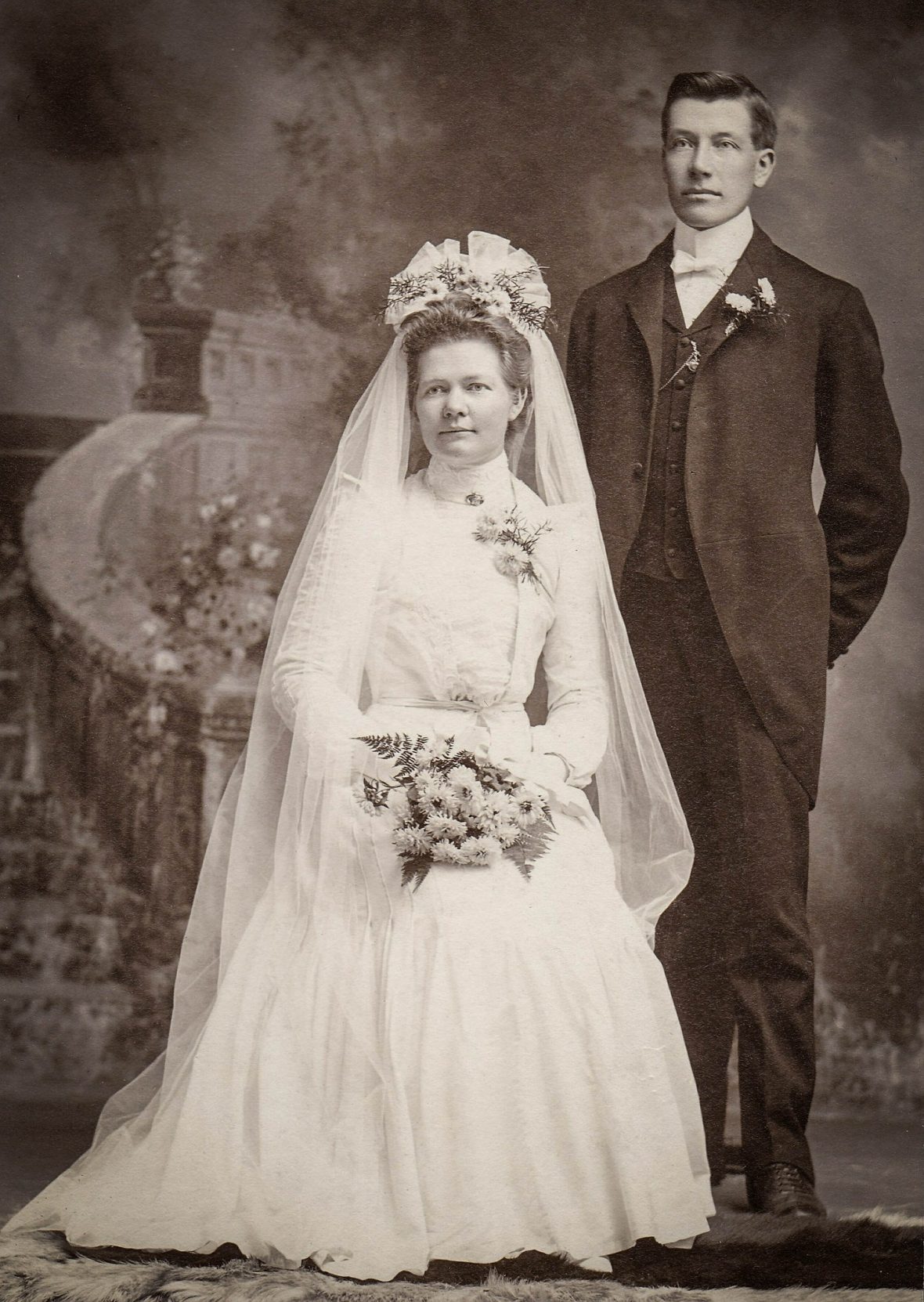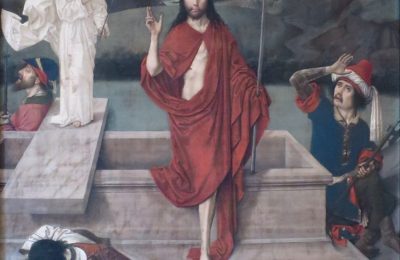The topic of vows has been in the Catholic news over the past weeks. The following is a re-post from March of 2018 which delves into the nature of vows with some additions made today. ~SCF
“If Americans can be divorced for ‘incompatibility of temper,’ I cannot conceive why they are not all divorced. I have known many happy marriages, but never a compatible one. The whole aim of marriage is to fight through and survive the instant when incompatibility becomes unquestionable. For a man and a woman, as such, are incompatible.” ~G.K. Chesterton (b. 1974- d. 1936), What’s Wrong with the World
G.K. Chesterton died in 1936, but prior to his death, easy divorce had begun to creep from America to England, and this displeased him. Chesterton did not have a theology degree. This English writer wrote from his sensus fidelium, and from a thorough knowledge of history. His ethical standard was a (Catholic) Fairyland which he detailed in his book, Orthodoxy. In Fairyland there where certain laws that were never to be broken; and if they were broken, unknown ill consequences would occur, ie., Cinderella had to be home by Midnight, Pandora’s Box was not to be opened, etc. Chesterton placed vows in this category. If you made a vow, you kept it.
The above quote of Chesterton could be applied to most human relationships, for humans, laden as we are with original and actual sin, usually end up, at some point in a relationship, knocking heads with each another. St. Therese, the doll of sanctity, claimed in her writings that the noisy sounds of another sister in her Carmelite convent chapel nearly incited her to extreme irritation; and it was only by offering this irritation to God that she could maintain her composure day after day; one long year after another long year. A modern person, hearing of her irritation and such, would recommend that she break her religious vows and flee to a more accommodating order. However, anyone with a modicum of common sense would know that something else in that new religious order would end up irritating her, for this life is not Utopia; and in relationships with others there will always be irritations, upsets, and real incompatibilities. However, today, and in Chesterton’s day, instead of clinging to promises, vows, and commitments, persons are often encouraged to flee them. This can be seen in no fault divorce, whose sentiments seem to be making inroads within the Catholic Church; however Catholic teaching and Tradition regarding the sanctity of Holy Matrimony does not change. God made the Commandments. We can not alter them. No one can. Again, the doctrines of the Church are walls, but they are the walls of a playground (G.K.C., see quote in our About section). We do not apologize for the doctrines and laws of the Church. Our ancestors did not apologize for the rules of marriage. We have to depart from the modern, gloomy view of the Ten Commandments. They, along with the precepts of the Church, were given to us out of love. G.K. Chesterton speaks of the positive nature of Catholic laws when he stated:
“…the curtness of the Commandments is an evidence, not of the gloom and narrowness of a religion but of its liberality and humanity. It is shorter to state the things forbidden than the things permitted precisely because most things are permitted and only a few things are forbidden. An optimist who insisted on a purely positive morality would have to begin by telling a man that he might pick dandelions on a common and go on for months before he came to the fact that he might throw pebbles into the sea. In comparison with this positive morality the Ten Commandments rather shine in that brevity which is the soul of wit.” (from Illustrated London News, January 3, 1920)
It seems that much of the confusion regarding the moral order has started from a confused notion of charity. The Rosary to the Interior group has published a new article this week (March 2018) regarding charity, and how it is revealed in the Second Joyful Mystery of the Holy Rosary. It is worth a read, especially to correct the wrong idea of charity that has crept into the fabric of our culture and society: Rosary to the Interior, the Second Joyful Mystery
It is delightful to breathe the air of Chestertonian thought, to live and think as our Catholic ancestors did, who assumed that a marriage vow was meant to be kept, and who died with the spouse of their youth at their side. Was it always an easy life? No, but they could die in peace knowing they had kept something sacred, a bond that the ethics of Fairyland warns one never to break: the golden chain which united them to their youthful selves (A Defense of Rash Vows, G.K.C.). This gold chain was kept intact, and I like to think, that our ancestors held (in their hearts) this mysterious chain as they died, intact and gleaming as they approached the shores of God in the eternal kingdom, where the god (God!) of their youths, was (and is for us, now) the same god (God!) of their old age.
In A Defense of Rash Vows, G.K. Chesterton again spoke of vows writing that:
“The man who makes a vow makes an appointment with himself at some distant time or place. The danger of it is that himself should not keep the appointment.”
Chesterton notes that it is the hearty man who keeps his vows. This man does not split himself up over the course of his lifetime, but is the same man. He is strong because of his interior integrity. (I am using the term man in the generic sense of all mankind.) Chesterton’s essay on the defense of vows is quite good, and the Chesterton Society has an abridged version on their website which now follows. It is an antidote to the negative views of vows which permeate the immoral culture of the world:
“If a prosperous modern man, with a high hat and a frock-coat, were to solemnly pledge himself before all his clerks and friends to count the leaves on every third tree in Holland Walk, to hop up to the City on one leg every Thursday, to repeat the whole of Mill’s ‘Liberty’ seventy-six times, to collect 300 dandelions in fields belonging to anyone of the name of Brown, to remain for thirty-one hours holding his left ear in his right hand, to sing the names of all his aunts in order of age on the top of an omnibus, or make any such unusual undertaking, we should immediately conclude that the man was mad, or, as it is sometimes expressed, was ‘an artist in life.’ Yet these vows are not more extraordinary than the vows which in the Middle Ages and in similar periods were made, not by fanatics merely, but by the greatest figures in civic and national civilization — by kings, judges, poets, and priests. One man swore to chain two mountains together, and the great chain hung there, it was said, for ages as a monument of that mystical folly. Another swore that he would find his way to Jerusalem with a patch over his eyes, and died looking for it. It is not easy to see that these two exploits, judged from a strictly rational standpoint, are any saner than the acts above suggested. A mountain is commonly a stationary and reliable object which it is not necessary to chain up at night like a dog. And it is not easy at first sight to see that a man pays a very high compliment to the Holy City by setting out for it under conditions which render it to the last degree improbable that he will ever get there.
But about this there is one striking thing to be noticed. If men behaved in that way in our time, we should, as we have said, regard them as symbols of the ‘decadence.’ But the men who did these things were not decadent; they belonged generally to the most robust classes of what is generally regarded as a robust age. Again, it will be urged that if men essentially sane performed such insanities, it was under the capricious direction of a superstitious religious system. This, again, will not hold water; for in the purely terrestrial and even sensual departments of life, such as love and lust, the medieval princes show the same mad promises and performances, the same misshapen imagination and the same monstrous self-sacrifice. Here we have a contradiction, to explain which it is necessary to think of the whole nature of vows from the beginning. And if we consider seriously and correctly the nature of vows, we shall, unless I am much mistaken, come to the conclusion that it is perfectly sane, and even sensible, to swear to chain mountains together, and that, if insanity is involved at all, it is a little insane not to do so.
The man who makes a vow makes an appointment with himself at some distant time or place. The danger of it is that himself should not keep the appointment. And in modern times this terror of one’s self, of the weakness and mutability of one’s self, has perilously increased, and is the real basis of the objection to vows of any kind. A modern man refrains from swearing to count the leaves on every third tree in Holland Walk, not because it is silly to do so (he does many sillier things), but because he has a profound conviction that before he had got to the three hundred and seventy-ninth leaf on the first tree he would be excessively tired of the subject and want to go home to tea. In other words, we fear that by that time he will be, in the common but hideously significant phrase, another man. Now, it is this horrible fairy tale of a man constantly changing into other men that is the soul of the decadence. That John Paterson should, with apparent calm, look forward to being a certain General Barker on Monday, Dr. Macgregor on Tuesday, Sir Walter Carstairs on Wednesday, and Sam Slugg on Thursday, may seem a nightmare; but to that nightmare we give the name of modern culture. One great decadent, who is now dead, published a poem some time ago, in which he powerfully summed up the whole spirit of the movement by declaring that he could stand in the prison yard and entirely comprehend the feelings of a man about to be hanged.
‘For he that lives more lives than one
More deaths than one must die.’And the end of all this is that maddening horror of unreality which descends upon the decadents, and compared with which physical pain itself would have the freshness of a youthful thing. The one hell which imagination must conceive as most hellish is to be eternally acting a play without even the narrowest and dirtiest greenroom in which to be human. And this is the condition of the decadent, of the aesthete, of the free-lover. To be everlastingly passing through dangers which we know cannot scare us, to be taking oaths which we know cannot bind us, to defying enemies who we know cannot conquer us — this is the grinning tyranny of decadence which is called freedom.
Let us turn, on the other hand, to the maker of vows. The man who made a vow, however wild, gave a healthy and natural expression to the greatness of a great moment. He vowed, for example, to chain two mountains together, perhaps a symbol of some great relief of love, or aspiration. Short as the moment of his resolve might be, it was, like all great moments, a moment of immortality, and the desire to say of it exegi monumentum aere perennius was the only sentiment that would satisfy his mind. The modern aesthetic man would, of course, easily see the emotional opportunity; he would vow to chain two mountains together. But, then, he would quite as cheerfully vow to chain the earth to the moon. And the withering consciousness that he did not mean what he said, that he was, in truth, saying nothing of any great import, would take from him exactly that sense of daring actuality which is the excitement of a vow.
The revolt against vows has been carried in our day even to the extent of a revolt against the typical vow of marriage. It is most amusing to listen to the opponents of marriage on this subject. They appear to imagine that the ideal of constancy was a yoke mysteriously imposed on mankind by the devil, instead of being, as it is, a yoke consistently imposed by all lovers on themselves. They have invented a phrase, a phrase that is a black and white contradiction in two words — ‘free-love’ — as if a lover ever had been, or ever could be, free. It is the nature of love to bind itself, and the institution of marriage merely paid the average man the compliment of taking him at his word. Modern sages offer to the lover, with an ill-favoured grin, the largest liberties and the fullest irresponsibility; but they do not respect him as the old Church respected him; they do not write his oath upon the heavens, as the record of his highest moment. They give him every liberty except the liberty to sell his liberty, which is the only one that he wants.
It is exactly this backdoor, this sense of having a retreat behind us, that is, to our minds, the sterlizing spirit in modern pleasure. Everywhere there is the persistent and insane attempt to obtain pleasure without paying for it. Thus, in politics the modern Jingoes practically say, ‘Let us have the pleasure of conquerors without the pains of soldiers: let us sit on sofas and be a hardy race.’ Thus, in religion and morals, the decadent mystics say: ‘Let us have the fragrance of sacred purity without the sorrows of self-restraint; let us sing hymns alternately to the Virgin and Priapus.’ Thus in love the free-lovers say: ‘Let us have the splendour of offering ourselves without the peril of committing ourselves; let us see whether one cannot commit suicide an unlimited number of times.’
Emphatically it will not work. There are thrilling moments, doubtless, for the spectator, the amateur, and the aesthete; but there is one thrill that is known only to the soldier who fights for his own flag, to the aesthetic who starves himself for his own illumination, to the lover who makes finally his own choice. And it is this transfiguring self-discipline that makes the vow a truly sane thing. It must have satisfied even the giant hunger of the soul of a lover or a poet to know that in consequence of some one instant of decision that strange chain would hang for centuries in the Alps among the silences of stars and snows. All around us is the city of small sins, abounding in backways and retreats, but surely, sooner or later, the towering flame will rise from the harbour announcing that the reign of the cowards is over and a man is burning his ships.”
Hopefully, soon, the towering flame will rise from the harbor announcing that the reign of the cowards is over and a man is burning his ships (a figurative description of a man who no longer looks for a way to break his vows, and slams the door on exits from his vowed life).
Hail vows!
May you have a good day.
•SCF
~Image: vintage wedding picture, simply beautiful.






